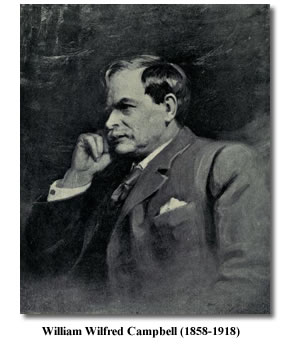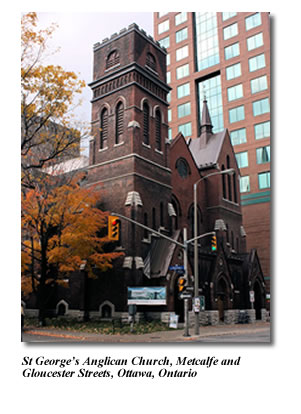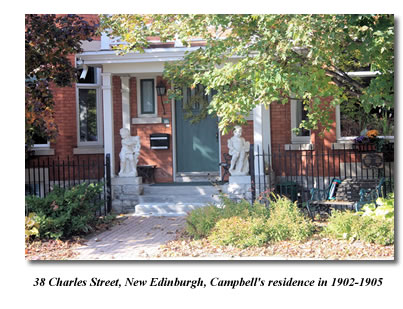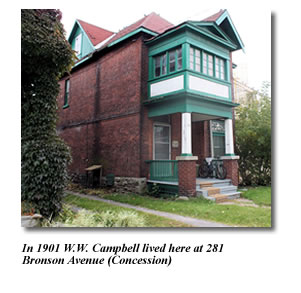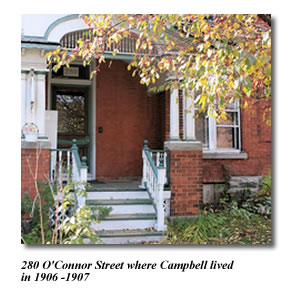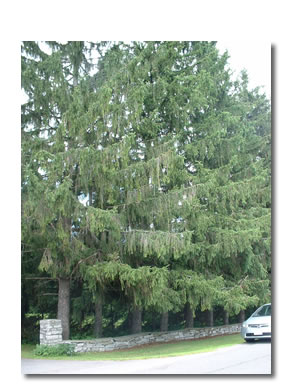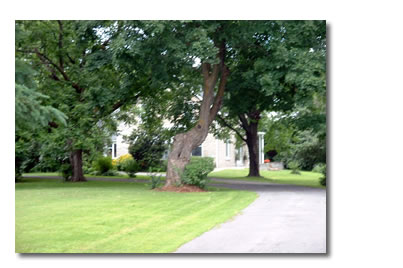WILLIAM WILFRED CAMPELL (1858-1918)
by Patricia Life
William Wilfred Campbell was a dramatist, novelist, short-story writer and critic as well as a poet. Perhaps for this reason he is not known as one of the “Confederation Poets” along with Roberts, Carman, Lampman and D. C. Scott. Unlike many Canadian writers of the time, Campbell did not go abroad and instead sought to write his poetry amidst the general indifference prevalent in his young country, and his critical writings chide Canadians for their “lack of interest” in national literature. His poetry addresses nature, society, patriotism, love and death. Some call him “the Canadian Wordsworth” because his best poems address the landscape of his own Lake District – the Great Lakes in general, but the area of the Bruce Peninsula between Georgian Bay and Lake Huron in particular.
Campbell was born in 1858 and lived in a number of small Ontario towns as he grew up. In 1872, the family settled in Wiarton, and Campbell attended the Owen Sound High School. With the intention of following in his father’s and grandfather’s footsteps by becoming a clergyman in the Church of England, he went to Wycliffe College at the University of Toronto and then Episcopal Divinity School in Cambridge, Massachusetts. In 1884, he married Mary DeBelle of Woodstock, Ontario, and they had four children. After ordination in 1886, he served in New Hampshire, New Brunswick and, after 1890, in Southampton on Lake Huron. In 1891, he abandoned the ministry, moved to Ottawa, and joined the Civil Service. There he met fellow employees Archibald Lampman and Duncan Campbell Scott. He later transferred to the Dominion Archives. In 1917, he was commissioned to document the history of the Imperial Munitions Board. However, he developed pneumonia after contracting a cold and died in 1918. He is buried in Beechwood Cemetery in Ottawa.
During his university days, he contributed to the University of Toronto’s The Varsity and, in Massachusetts, to Harper’s Monthly and The Atlantic. He published five books of poetry: Sunshine and Snowflakes (1888), Lake Lyrics (1889), The Dread Voyage and Other Poems (1893), Beyond the Hills of Dream (1899), and Sagas of Vaster Britain (1914). He published Collected Poems in1905 and a second collection was published posthumously in 1923. He wrote three novels, a number of dramas, and several prose works on such topics as the lake region and the Scotsman in Canada. He provided the text for a book of illustrations of Canada, and he edited two anthologies of poems. The columns entitled “At the Mermaid Inn” published in the Toronto Globe between 1892 and 1893 included his critical commentary. Campbell was elected to the Royal Society of Canada in 1894 and, in 1901, served as its president. Aberdeen University awarded him a Doctor of Laws in 1906. |

